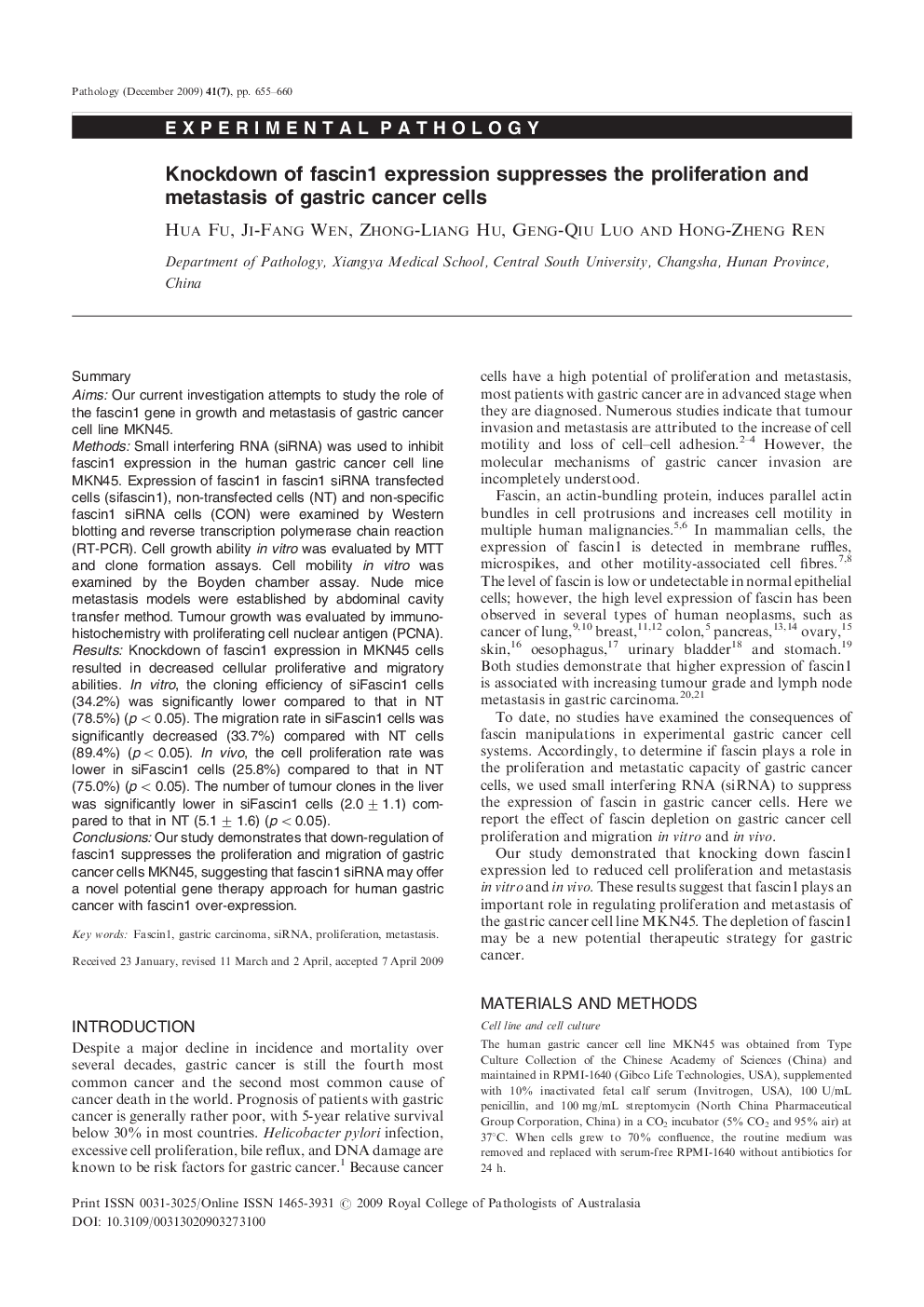| Article ID | Journal | Published Year | Pages | File Type |
|---|---|---|---|---|
| 105519 | Pathology | 2009 | 6 Pages |
SummaryAimsOur current investigation attempts to study the role of the fascin1 gene in growth and metastasis of gastric cancer cell line MKN45.MethodsSmall interfering RNA (siRNA) was used to inhibit fascin1 expression in the human gastric cancer cell line MKN45. Expression of fascin1 in fascin1 siRNA transfected cells (sifascin1), nontransfected cells (NT) and nonspecific fascin1 siRNA cells (CON) were examined by Western blotting and reverse transcription polymerase chain reaction (RTPCR). Cell growth ability in vitro was evaluated by MTT and clone formation assays. Cell mobility in vitro was examined by the Boyden chamber assay. Nude mice metastasis models were established by abdominal cavity transfer method. Tumour growth was evaluated by immunohistochemistry with proliferating cell nuclear antigen (PCNA).ResultsKnockdown of fascin1 expression in MKN45 cells resulted in decreased cellular proliferative and migratory abilities. In vitro, the cloning efficiency of siFascin1 cells (34.2%) was significantly lower compared to that in NT (78.5%) (p < 0.05). The migration rate in siFascin1 cells was significantly decreased (33.7%) compared with NT cells (89.4%) (p < 0.05). In vivo, the cell proliferation rate was lower in siFascin1 cells (25.8%) compared to that in NT (75.0%) (p < 0.05). The number of tumour clones in the liver was significantly lower in siFascin1 cells (2.0 ± 1.1) compared to that in NT (5.1 ± 1.6) (p < 0.05).ConclusionsOur study demonstrates that downregulation of fascin1 suppresses the proliferation and migration of gastric cancer cells MKN45, suggesting that fascin1 siRNA may offer a novel potential gene therapy approach for human gastric cancer with fascin1 overexpression.
